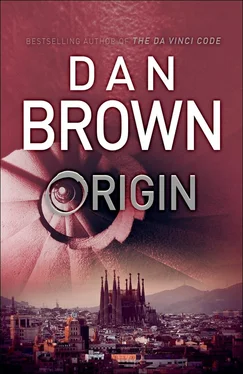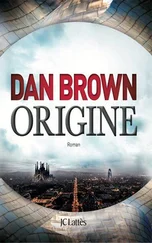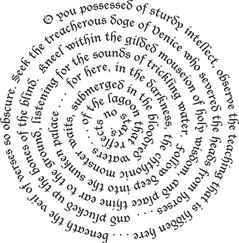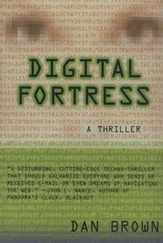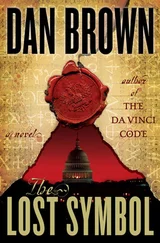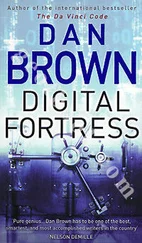In a flash, Langdon realized what Edmond was describing.
The Seventh Kingdom.
Awestruck, Langdon watched as Edmond delivered the news to the world, describing an emergent kingdom that Langdon had recently heard about in a TED Talk by digital-culture writer Kevin Kelly. Prophesied by some of the earliest science-fiction writers, this new kingdom of life came with a twist.
It was a kingdom of nonliving species.
These lifeless species evolved almost exactly as if they were living — becoming gradually more complex, adapting to and propagating in new environments, testing new variations, some surviving, others going extinct. A perfect mirror of Darwinian adaptive change, these new organisms had developed at a blinding rate and now made up an entirely new kingdom — the Seventh Kingdom — which took its place beside Animalia and the others.
It was called: Technium.
Edmond now launched into a dazzling description of the planet’s newest kingdom — which included all of technology . He described how new machines thrived or died by the rules of Darwin’s “survival of the fittest” — constantly adapting to their environments, developing new features for survival, and, if successful, replicating as fast as they could in order to monopolize the available resources.
“The fax machine has gone the way of the dodo bird,” Edmond explained. “And the iPhone will survive only if it keeps outperforming its competition. Typewriters and steam engines died in changing environments, but the Encyclopaedia Britannica evolved, its cumbersome thirty-two-volume set sprouting digital feet and, like the lungfish, expanding into uncharted territory, where it now thrives.”
Langdon flashed on his childhood Kodak camera — once the T. rex of personal photography — obliterated overnight by the meteoric arrival of digital imaging.
“Half a billion years ago,” Edmond continued, “our planet experienced a sudden eruption of life — the Cambrian Explosion — in which most of the planet’s species came into existence virtually overnight. Today, we are witnessing the Cambrian Explosion of the Technium. New species of technology are being born daily, evolving at a blinding rate, and each new technology becomes a tool to create other new technologies. The invention of the computer has helped us build astonishing new tools, from smartphones to spaceships to robotic surgeons. We are witnessing a burst of innovation that is happening faster than our minds can comprehend. And we are the creators of this new kingdom — the Technium.”
The screen now returned to the disturbing image of the expanding black bubble that was consuming the blue one. Technology kills off humanity? Langdon found the idea terrifying, and yet his gut told him it was highly improbable. To him, the notion of a dystopian Terminator-like future where machines hunted people to extinction seemed counter-Darwinian. Humans control technology; humans have survival instincts; humans will never permit technology to overrun us.
Even as this sequence of logical thoughts passed through his mind, Langdon knew he was being naive. Having interacted with Edmond’s AI creation Winston, Langdon had been given a rare glimpse at the state of the art in artificial intelligence. And while Winston clearly served Edmond’s wishes, Langdon wondered how long it would be until machines like Winston started making decisions that satisfied their own wishes.
“Obviously, many people before me have predicted the kingdom of technology,” Edmond said, “but I have succeeded in modeling it... and being able to show what it will do to us.” He motioned to the darker bubble, which, by the year 2050, spanned the entire screen and indicated a total dominance of the planet. “I must admit, at first glance, this simulation paints a pretty grim picture...”
Edmond paused, and a familiar twinkle returned to his eye.
“But we really must look a bit closer,” he said.
The display now zoomed in on the dark bubble, magnifying it until Langdon could see that the massive sphere was no longer jet black, but a deep purple.
“As you can see, the black bubble of technology, as it consumes the human bubble, assumes a different hue — a shade of purple — as if the two colors have blended together evenly.”
Langdon wondered if this was good news or bad news.
“What you are seeing here is a rare evolutionary process known as obligate endosymbiosis,” Edmond said. “Normally, evolution is a bifurcating process — a species splits into two new species — but sometimes, in rare instances, if two species cannot survive without each other, the process occurs in reverse... and instead of one species bifurcating, two species fuse into one.”
The fusion reminded Langdon of syncretism — the process by which two different religions blended to form an entirely new faith.
“If you don’t believe that humans and technology will fuse,” Edmond said, “take a look around you.”
The screen displayed a rapid-fire slide show — images of people clutching cell phones, wearing virtual-reality goggles, adjusting Bluetooth devices in their ears; runners with music players strapped to their arms; a family dinner table with a “smart speaker” centerpiece; a child in a crib playing with a computer tablet.
“These are just the primitive beginnings of this symbiosis,” Edmond said. “We are now starting to embed computer chips directly into our brains, inject our blood with tiny cholesterol-eating nanobots that live in us forever, build synthetic limbs that are controlled by our minds, use genetic editing tools like CRISPR to modify our genome, and, quite literally, engineer an enhanced version of ourselves.”
Edmond’s expression seemed almost joyful now, radiating passion and excitement.
“Human beings are evolving into something different ,” he declared. “We are becoming a hybrid species — a fusion of biology and technology. The same tools that today live outside our bodies — smartphones, hearing aids, reading glasses, most pharmaceuticals — in fifty years will be incorporated into our bodies to such an extent that we will no longer be able to consider ourselves Homo sapiens. ”
A familiar image reappeared behind Edmond — the single-file progression from chimpanzee to modern man.
“In the blink of an eye,” Edmond said, “we will become the next page in the flip-book of evolution. And when we do, we will look back on today’s Homo sapiens the same way we now look back at Neanderthal man. New technologies like cybernetics, synthetic intelligence, cryonics, molecular engineering, and virtual reality will forever change what it means to be human . And I realize there are those of you who believe you, as Homo sapiens , are God’s chosen species. I can understand that this news may feel like the end of the world to you. But I beg you, please believe me... the future is actually much brighter than you imagine.”
With a sudden outpouring of hope and optimism, the great futurist launched into a dazzling description of tomorrow, a vision of a future unlike any Langdon had ever dared imagine.
Edmond persuasively described a future where technology had become so inexpensive and ubiquitous that it erased the gap between the haves and the have-nots. A future where environmental technologies provided billions of people with drinking water, nutritious food, and access to clean energy. A future where diseases like Edmond’s cancer were eradicated, thanks to genomic medicine. A future where the awesome power of the Internet was finally harnessed for education, even in the most remote corners of the world. A future where assembly-line robotics would free workers from mind-numbing jobs so they could pursue more rewarding fields that would open up in areas not yet imagined. And, above all, a future in which breakthrough technologies began creating such an abundance of humankind’s critical resources that warring over them would no longer be necessary.
Читать дальше
